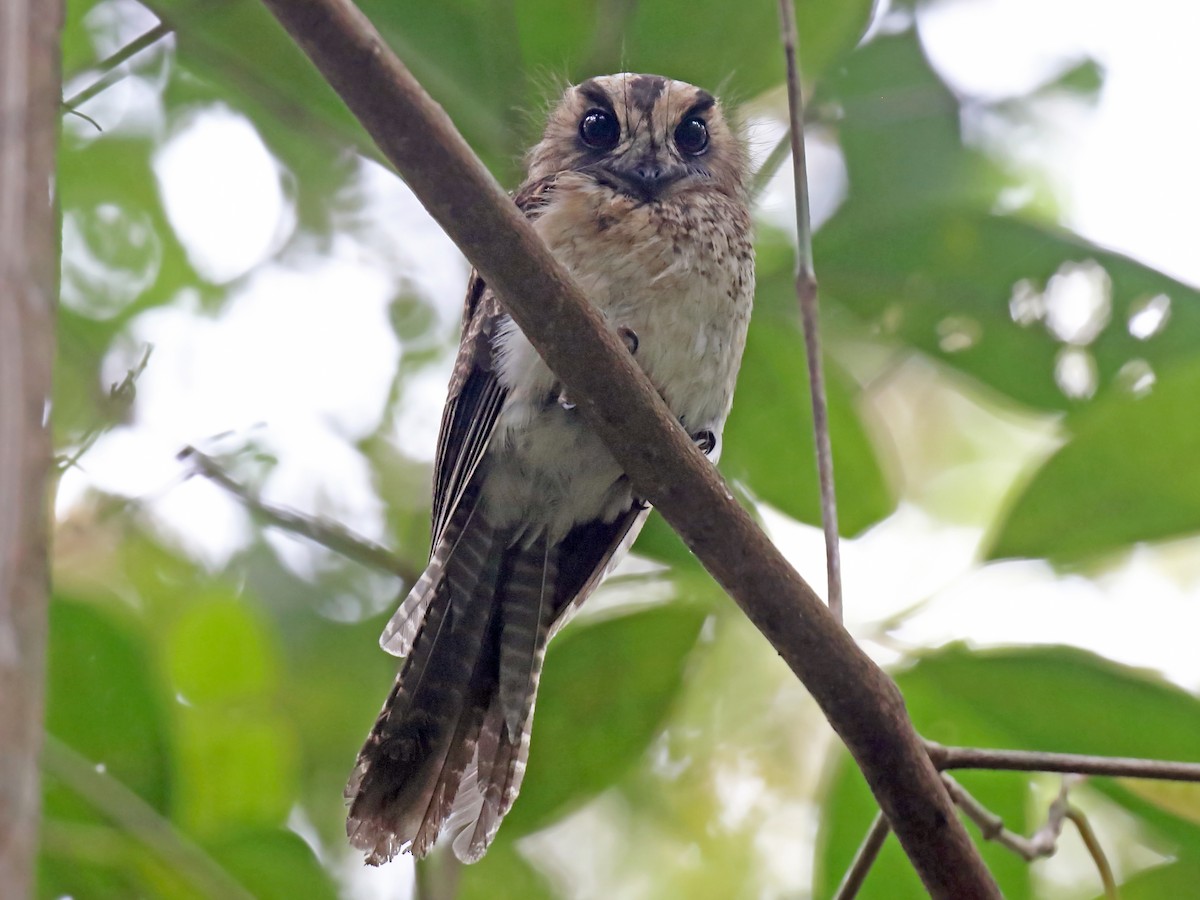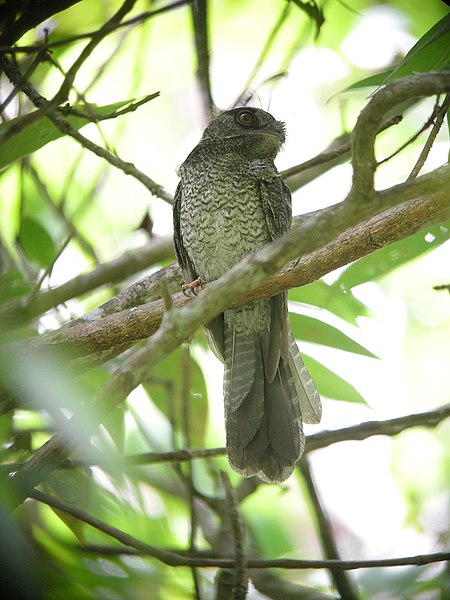Barred Owlet-nightjar Bird Details
Aegotheles bennettii
Barred Owlet-nightjar
NA
Adelardo Tommaso Salvadori and Luigi Mari Albertis, 1875
Caprimulgiformes (NIGHTJARS AND ALLIES)
Aegothelidae
Aegotheles
Australia.
Appearance :
The Barred Owlet-nightjar is a small nocturnal bird with a distinctive appearance. It has a plump body, large head, and relatively short wings and tail. The plumage is mostly brown with intricate barring and mottling, which helps it blend into its habitat.
Behaviour :
This species is primarily nocturnal and crepuscular, meaning it is active during twilight and night. It hunts insects from perches and has a distinctive call which is often heard at dusk.
Habitat :
Barred Owlet-nightjars inhabit forests and woodlands, preferring areas with dense vegetation where they can roost and nest in tree hollows.
Diet :
They primarily feed on insects such as moths, beetles, and other small invertebrates that they catch in flight or pick off vegetation.
Conservation Status :
Least Concern
Distribution :
They are found in various parts of Australia, particularly in the northern and eastern regions, including Queensland and the Northern Territory.
Population Size :
Specific population size estimates are not readily available.
Life Span :
Live up to 10 years or more.
Body And Tarsus:
- The Barred Owlet-nightjar has a plump body with a compact appearance, adapted for nocturnal flight and hunting.
- Tarsus Length: Typically, short.
Head And Bill :
- Head: The head is relatively large compared to its body size.
- Bill: A short, stout bill.
- Bill Length: The bill is short.
Length :
Measures around 20-25 centimeters in length.
Neck :
The neck is relatively short and stout, blending into the compact body structure.
Size :
Small to medium-sized bird.
Tail Details :
Weight :
Generally 60gram.
Wing :
Wings are moderately long and pointed, adapted for swift and silent flight.
Wing Span :
Wingspan typically matches or slightly exceeds body length, aiding in agile flight.
Facial Feature :
The Barred Owlet-nightjar has large, dark eyes adapted for low-light vision, and a facial disk that helps in capturing and focusing sound during hunting.
Nest Details :
Breeding Season :
Typically breeds during the warmer months of the year, which in northern Australia can correspond to the wet season.
Nesting Season :
Generally occurs during the breeding period.
Egg Color :
Generally white or creamy-white with possibly some speckling.
Egg Length :
Approximately 24-28 millimeters.
Egg Width and Weight :
Clutch Size :
Typically lays 1-2 eggs per clutch.
No. of Broods :
Usually raises one brood per breeding season.
Incubation Period :
About 20-30 days, during which the female primarily incubates the eggs.
Nestling Period :
About 30-40 days before fledging.
Vocalization :
They are known for their distinctive vocalizations, including soft, repetitive calls often heard at dusk and during the night.
Sex Demorphism :
Males and females generally having similar plumage and size
Migration Details :
They are non-migratory birds.
Explore More Birds Of Same Genus
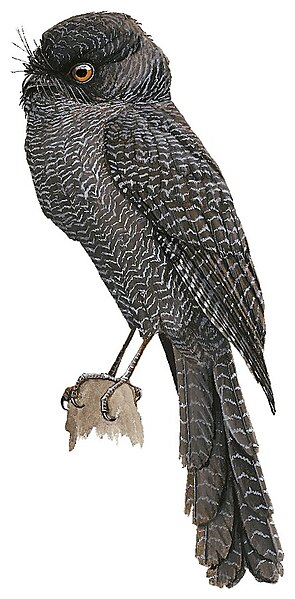
New Caledonian Owlet-nightjar
Know More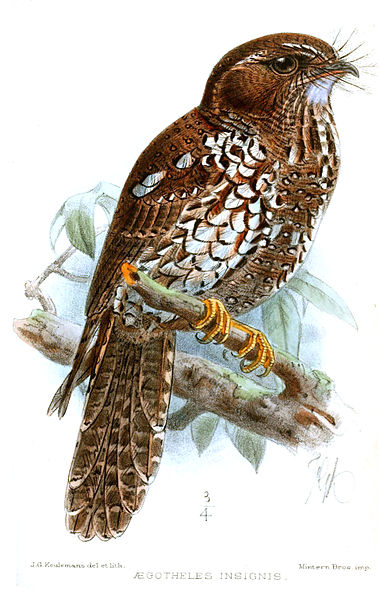
Feline Owlet-nightjar
Know More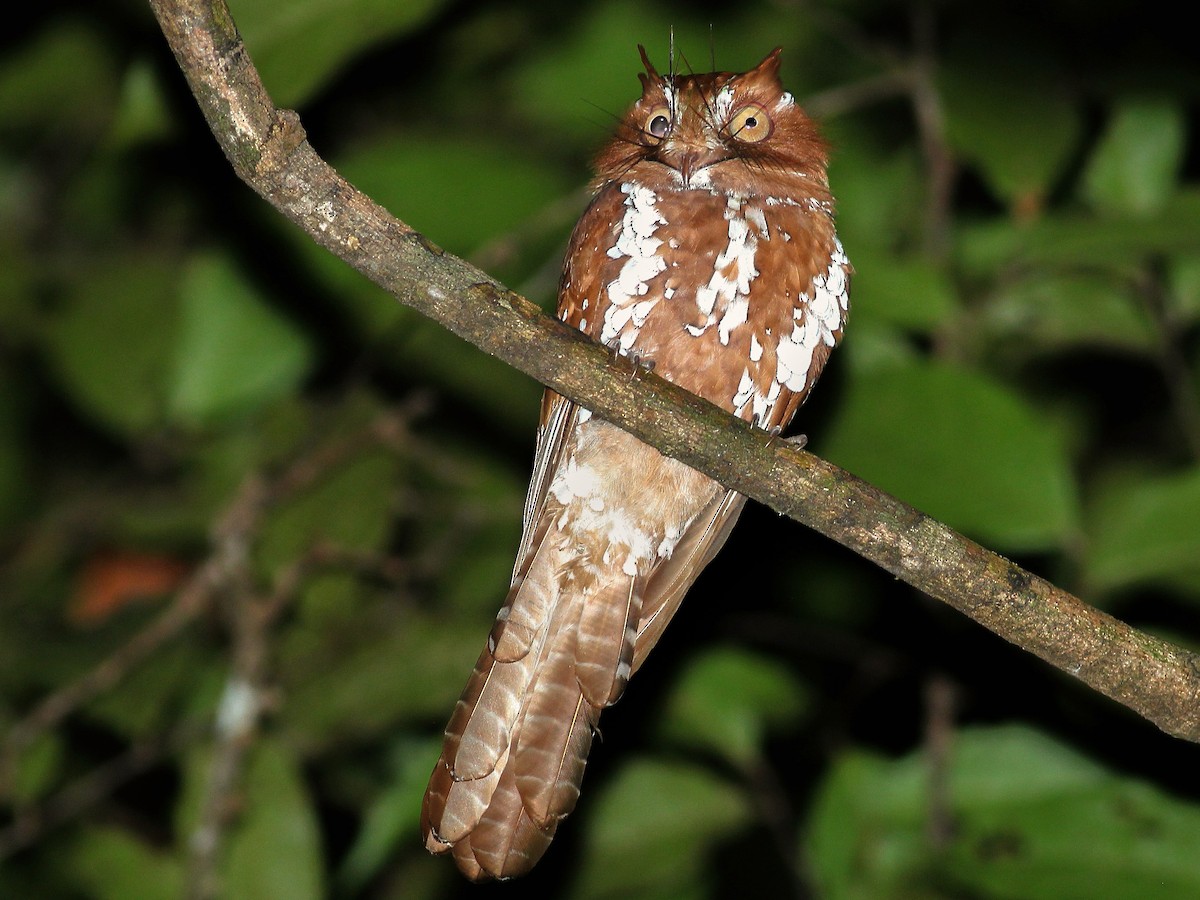
Starry Owlet-nightjar
Know More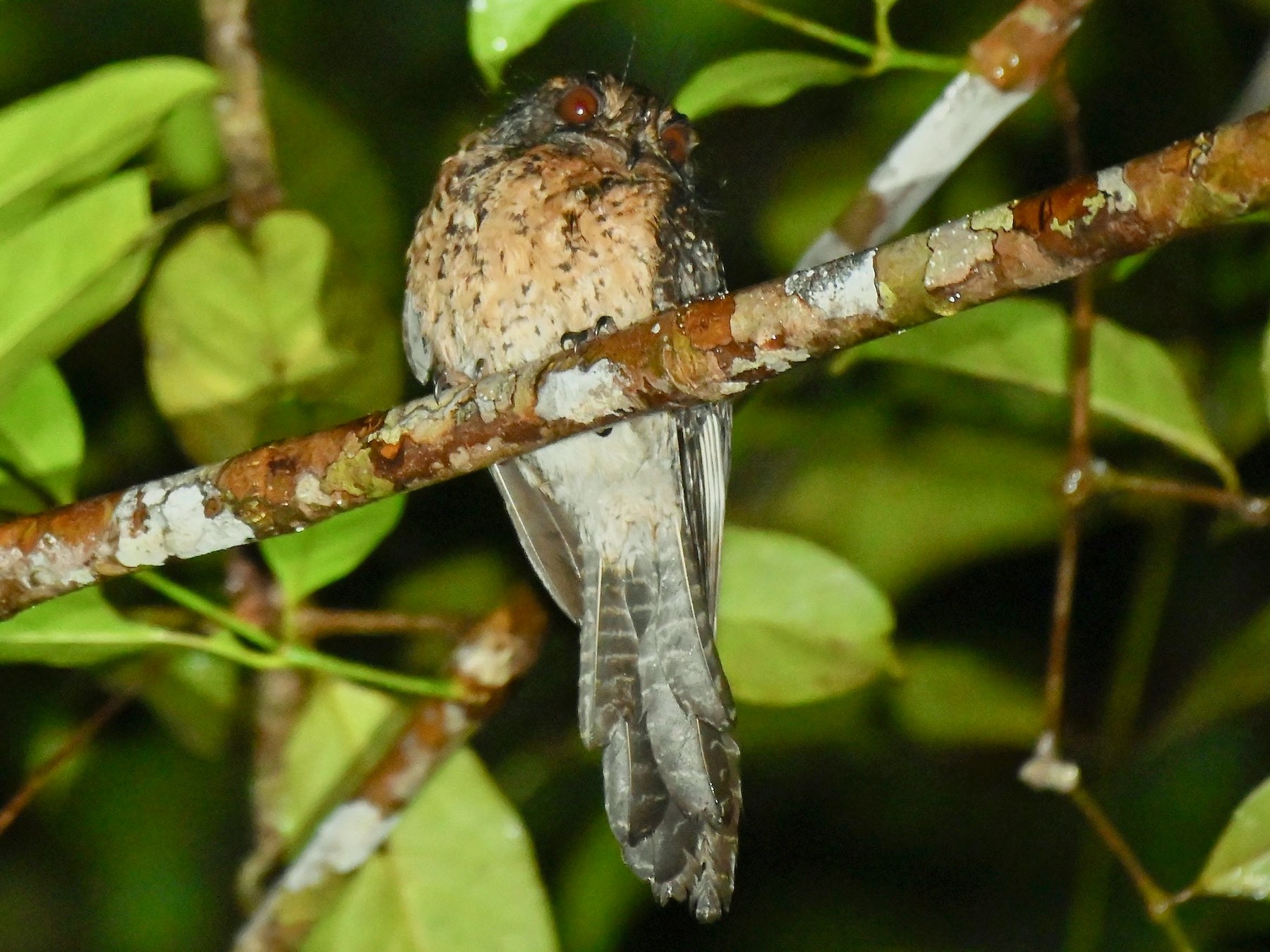
Wallace’s Owlet-nightjar
Know More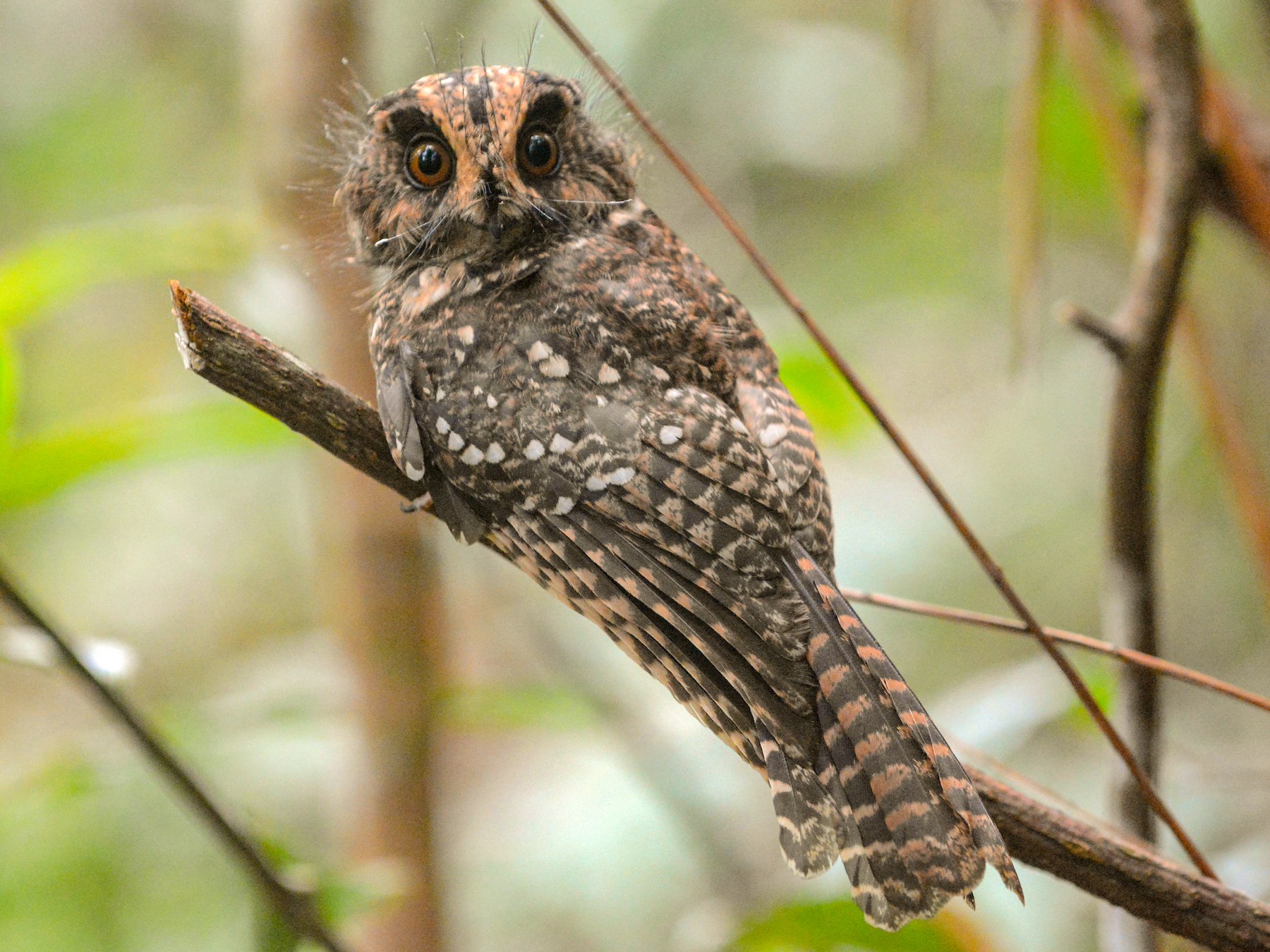
Mountain Owlet-nightjar
Know More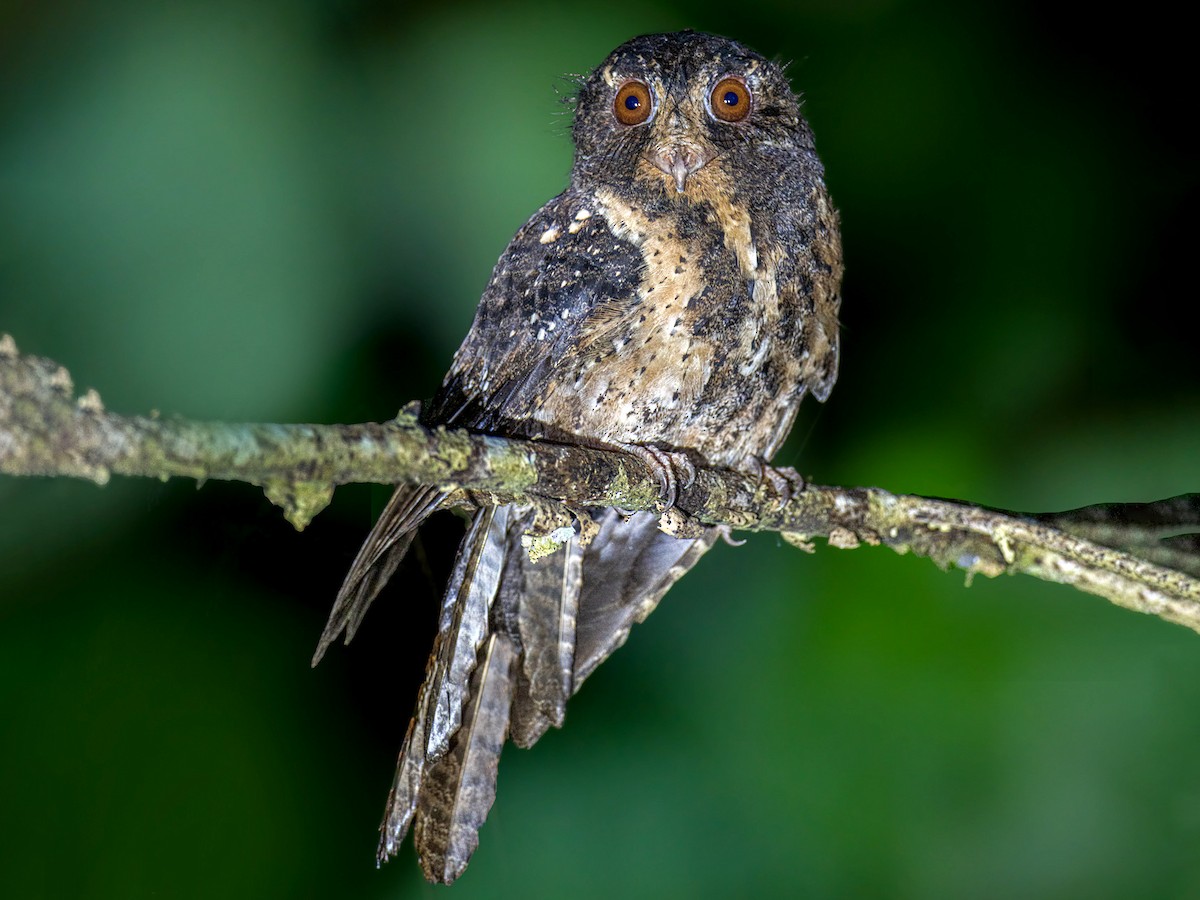
Moluccan Owlet-nightjar
Know MoreAustralian Owlet-nightjar
Know More